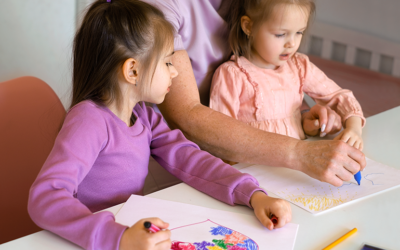Supporting You in Your Time of Grief
Tabitha’s comprehensive bereavement program offers support to spouses and family members during a time of loss.
Tabitha Hospice offers bereavement services for 18 months following the loss of your loved one.
- Individual grief support
- Grief support groups
- Educational grief events
- Phone call check-ins/support
- Remembrance services
- Mailings, including grief support, Embrace newsletter, resources and more
Tabitha Hospice Bereavement Coordinators
Our Bereavement Coordinators provide grief support following the death of your loved one.

Juanita Steenbakkers
Serving the Nebraska City Area
402.416.7365

Jason Padilla
Serving the Lincoln/Lancaster Area
402.366.6791

Dan Rogers
Serving the Grand Island, Kearney & York Areas
402.366.6791
Grief Support Groups & Remembrance Services
Tabitha is proud to offer Grief Support Groups throughout the year as a service to family members and friends experiencing the recent death of a loved one. The meetings promote healthy conversation between a Tabitha team member specifically trained in grief support and a small group of individuals going through a common experience.
The purpose of Tabitha’s grief support groups is to equip participants with the tools and resources needed to reinvest in life.
Grief Note
May brings Mother’s Day, Memorial Day and many memories. Holidays, anniversaries and other occasions may be tough to get through, but they are important times to reflect and remember loved ones. Telling their stories and reminiscing about the lives they lived is healing and will help you feel a range of emotions.
At first, this practice may feel sad and painful, but it will offer you a chance to broaden your perspectives. In time, you’ll recall not only your loss, but the joyful, funny, endearing and precious memories, too.
Honor your loved one by Celebrating what they loved to do. On these special occasions, you might eat their favorite meal in their honor, watch their favorite movie or listen to the music they loved. Spend time with family and friends and share your memories together.
Memorial Day is a traditional time to visit and tidy up your loved one’s gravesite, bring flowers or flags and spend time in quiet contemplation. Talk with your loved one and offer updates, details on new adventures, gratitude for their life or service or even the difficulties you’re facing.
While it might seem odd at first, speaking with your loved one can be comforting and offers a way to stay Connected beyond just your memories.
Another idea: have a special space in your home for them. This might be a shelf, nightstand or corner of a garden where you can remember them. Feature pictures, mementos and anything else that reminds you of their story.
Recall their best advice to you and write it down. Keep these sayings in this special place or put them up on the kitchen cupboard, bathroom mirror or somewhere you can see them easily. When you need a boost of encouragement, these messages can remind you of the impact their love had—and continues to have—on your life. Remember that while grief can be painful at times, it offers us fond memories and stories.
As always, Tabitha’s Bereavement Coordinators are available for support along your journey.
Grief Book and Podcast Suggestions
Sometimes finding the right book, website or podcast can help you process thoughts, feelings and provide helpful insight or information. Check out suggestions by types of loss.







